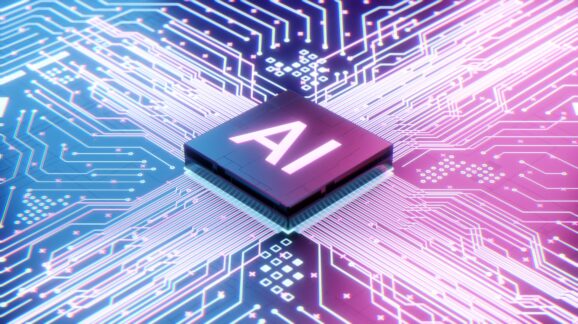We Need to Pay More Attention to AI

Photo Credit: Getty
Artificial intelligence (AI) is one of the most important emerging technologies today. It has the potential to revolutionize many industries and sectors, including health care, transportation, manufacturing, and more. However, many people say AI also poses some risks, such as job displacement and privacy concerns. These concerns are exaggerated.
Congress and policy makers need to pay more attention to AI in order to ensure that its benefits are maximized and its risks are minimized. Some specific policy areas that should be addressed include taking a hands-off approach to AI regulation, encouraging its development through permissive policies like regulatory sandboxes.
The overwhelming majority of studies show that there will be few if any significant job losses due to advances in machine learning and artificial intelligence (AI). In fact, many jobs will be created as machines learn how to do things faster than people can.
Privacy concerns about the use of AI have been overblown too; currently available technology does not allow for true “smart” surveillance or infinite tracking of individuals’ activities without their knowledge or consent. Furthermore, current data protection laws would likely prevent large-scale invasions of privacy by companies using powerful AI algorithms for marketing purposes or other commercial reasons. …
We need to pay more attention to AI because it is improving rapidly and has the potential to enhance human intelligence
Despite concerns about the potential for AI to displace human workers, there is evidence that AI can actually enhance human productivity and create new job opportunities. For example, AI has the potential to help us solve complex problems and make better decisions by providing us with more data and insights. Additionally, as AI gets smarter, it will become increasingly important to ensure that its goals remain aligned with our own values and ethical principles.
AI has the potential to help us automate repetitive tasks and improve accuracy in areas such as medicine and finance. As a result of these improvements, we may see an increase in jobs that are currently performed by humans being automated.
The potential for AI to enhance human intelligence was demonstrated in a study published in December of last year which found that computers outperformed some of the world’s best students on a task involving logical reasoning. This suggests that artificial intelligence has the ability to improve upon human cognitive abilities even further in the future.
We need to pay more attention to AI because it is improving rapidly; this means that we have the opportunity to harness its capabilities before they reach their full potential and potentially outpace our own abilities as humans.
Artificial intelligence (AI) is a branch of computer science that deals with the development of intelligent machines that can think and work like humans. AI technologies are being used in a variety of fields, including health care, finance, manufacturing, transportation, and more. AI has the potential to revolutionize our economy and society, but while there are risks associated with its development and deployment these are often exaggerated. There are several different forms of intelligence. For example, spatial intelligence and linguistic intelligence. AI can specialize in these different forms. It is generally not a human-like general intelligence. So AI can help people enhance their intelligence by helping them to learn faster, remember more information, or do better on tasks that require focus or concentration.
How AI is improving rapidly
We need to pay more attention to AI because it is improving rapidly. Artificial intelligence is already being used in many different areas, including health care, finance, and transportation. It has the potential to improve our lives in a number of ways, including making us healthier and more efficient. However, there are concerns that AI may be developed inappropriately or without consideration for its potential impact on society as a whole. These concerns are based on a misunderstanding of how AI is developing. In fact, responsible and ethical development of AI is becoming increasingly important as its capabilities continue to grow.
AI is improving at an unprecedented rate, becoming faster, more accurate, and more capable every day. This advancement has the potential to revolutionize many aspects of our lives—from communication and interaction to work and living.
AI is being used more and more in industry and government. Its benefits are clear: It can speed up processes, improve accuracy, and save time and money.
The potential for AI to improve our lives is immense—from making our interactions with others easier to managing complex tasks efficiently.
However, there are also risks associated with this rapid development; lawmakers need to be aware of these so that they can make informed decisions about how best to proceed.
While heavy-handed regulation could stunt AI’s development, Congress should take a proactive stance in order not reduce the benefits it offers society as a whole.
We must ensure that we capitalize on the incredible opportunities that artificial intelligence presents while mitigating its risks.
This post was (mostly) AI-generated
If you’ve gotten this far, you may have felt that this post was slightly different in style from my previous posts. That’s because this post was mostly generated from a list of key phrases I entered into the AI writing tool Moonbeam.
I did have to alter it, though. It kept insisting that I worry more about the risks of AI and suggested regulation and federal funding as solutions. Either it was trying to warn me about impending SKYNET, or (more likely) as of yet this writing AI rejects heterodox opinions and prefers to parrot received wisdom about policy issues. However, when I edited the (AI-generated) outline to concentrate on the benefits, it included the references above to research that demonstrates those benefits.
Now if only I could get it to include hyperlinks. …